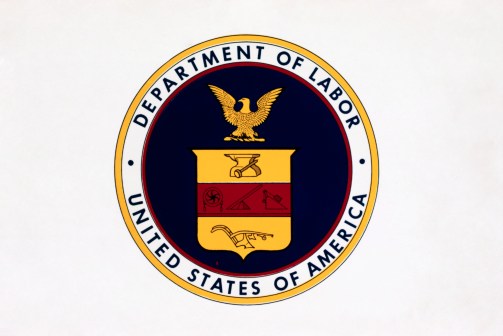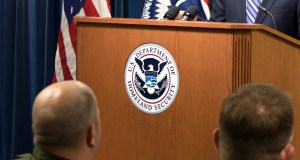This month marks the 11th straight year the Department of Homeland Security has sponsored a National Cybersecurity Awareness Month. So why do so many young adults ages 18 to 26 — the so-called millennials — say they’re not sure what it means to have a career in cybersecurity?
Almost two-thirds of millennials said they don’t know or aren’t sure what the cybersecurity profession is, according to a new survey sponsored by Raytheon and the National Cyber Security Alliance. Sixty-three percent said they were not sure or did not know the typical range of responsibilities and job tasks involved in the cyber profession.
“Millennials are interested but unprepared to enter the cybersecurity profession, uncertain about the responsibilities of someone in this job, and lack mentors to help bridge the gap,” according to the survey.
 The survey asked millennials whether their parents or teachers during high school had brought up the idea of a cybersecurity career. (Click to expand.)
The survey asked millennials whether their parents or teachers during high school had brought up the idea of a cybersecurity career. (Click to expand.)Although 41 percent said during high school, at least one teacher, guidance or career counselor, or other adult in an after-school program or extracurricular activity brought up the idea of a career in cybersecurity, the survey points to continuing shortcomings in the educational system. For example, 64 percent of millennials reported not having access to computer classes during high school that would have better prepared them for careers in technology and cybersecurity.
In addition, the survey notes that millennials have specific information needs to help them determine whether they would be interested in a cybersecurity career, and those needs are not being met by educators and mentors. For example, 48 percent said they might be more interested in a cybersecurity career if they had more information about what the jobs entail. Forty percent said more relevant classes and training that would allow them to determine if they were good at cybersecurity might increase their interest level. And 34 percent would like information about earnings potential and “reassurance that I would earn a good living.”
“There is a golden opportunity for parents and educators to bring up cybersecurity careers and generate more interest with millennials and younger generations,” the survey states. “Educators and current cyber professionals need to collaborate to develop courses, provide information about cybersecurity job responsibilities and salary ranges, and offer mentoring and job shadowing.”
“This study shows that despite the fact that more students are generally interested in pursuing related careers, they often lack the needed skills and encouragement that our educators should be providing to grow the talent pipeline,” said Jack Harrington, vice president of cybersecurity and special missions for Raytheon’s Intelligence, Information and Services business, in a release. “There is a clear opportunity to help close the gap between the demand and supply for cybersecurity talent with more counseling, training, and collaboration between our high school educators and the private sector.”
Michael Kaiser, executive director of the National Cyber Security Alliance, said the string of high-profile security breaches during the past year have almost certainly helped close the technology education gap. “However, our findings once again illustrate there is still a massive opportunity to match the growing interest in cybersecurity with more information as students begin exploring careers and establishing their online presence,” he said in the release.







